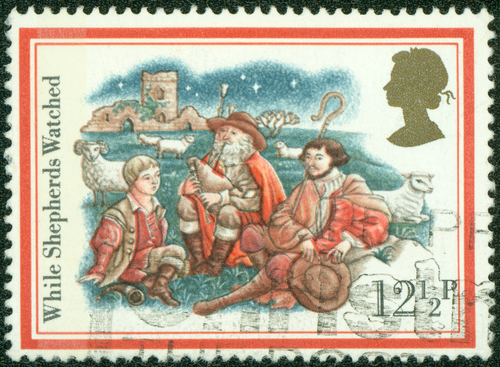People have been singing Christmas carols in the pubs in villages around Sheffield, in the north of England, for hundreds of years. They sing week after week and year after year. Each pub has a season; in one, Christmas carols start on November 11 and continue until the first Sunday after Christmas. Every Sunday afternoon, people pack into a pub and sing together.
On Tuesday folklorist Ian Russell gave a lecture at the Library of Congress about his work on what he calls the “hidden” carols of northern England, particularly those Sheffield pubs. Russell is the director of the Elphinstone Institute at the University of Aberdeen in Scotland. He’s been studying folk traditions in South Yorkshire—which includes Sheffield—and North Derbyshire for 40 years.
A pub carol sing isn’t a religious occasion. It’s secular caroling. There’s beer. Sure, they sing about the Messiah’s birth and Mary and so on, but the point of being there, Russell says, is the community. People go out of a sense of commitment to the group and to the tradition. You do it every year because you do it every year.
The Christmas music that Britain exports is the angelic tones of boys and men in choir robes—the glorious English Protestant choral tradition. Every year the Christmas Eve service broadcast worldwide by the BBC starts with one pure boy soprano’s voice singing the first verse of “Once in Royal David’s City.” The choir joins in. They’re extremely well-rehearsed and the singing is heavenly.
These village pub carols are pretty much the opposite of that. The emphasis is on maximum volume, not nuanced dynamics. Unlike the choral ideal in which voices blend into one unified tone, individual voices stick out. In fact, it’s competitive, Russell says.
And tuning isn’t particularly precise. Some people are right on the pitch; others are just kind of in the neighborhood, a bit above or a bit below. Russell called this “broad tuning.” The audience in the lecture room giggled, but he admonished us: “Don’t mock!” If we were to start singing, he said, we’d be in broad tuning, too. And the point isn’t to sing in tune; the point is to sing. “It’s the way people participate,” he said.
The carols are totally unfamiliar to the American ear. Only one that he played used familiar words, but it turns out that “While Shepherds Watched Their Flocks By Night” can be sung to an awful lot of tunes. He played recordings of carols like “Mount Moriah” and “Hark, Hark What News.” Many of these tunes were composed in the 1600s and early 1700s, Russell says, when Puritan influence was kicking carols out of the church. The Puritans were not fans of good cheer. Carols moved into the streets and homes and pubs. Regular people composed new carols, strongly influenced by Baroque composers like Bach and Handel.
I bought one of Russell’s CDs, a set of recordings from the Royal Hotel, a pub in Dungworth, just outside Sheffield. You can hear people chatting and glasses clinking. The tuning is definitely broad, and a roomful of singers singing their lungs out does not strike my ear as restful or holy.
But it’s so full of feeling. When people say they don’t like Christmas music, I think they’re mostly talking about retail Christmas music. Pop stars singing syrupy, grossly sentimental versions of carols. Dreadful earworms like “Jingle Bell Rock.” Songs that, I assume, have been proven by market research to make people want to buy things. Stores wouldn’t be playing all those awful versions of “The Little Drummer Boy” if they didn’t think it would work.
The people at the Royal Hotel in Dungworth are doing Christmas right. “Behold, the grace appears! The promise is fulfilled; Mary, the wondrous virgin, bears, and Jesus is the child!” they holler, pint glasses in hand, to the accompaniment of a small organ. That’s “Back Lane,” another carol you probably don’t know. This Christmas isn’t about shopping, and it’s only distantly connected with the Christian holiday people celebrate in late December. It’s about coming together to do something happy and bright in the darkest time of the year, and knowing that even if it’s dismal and cruddy now, things are going to get better.
photo: YANGCHAO / Shutterstock.com

This is great. It looked just the way Christmas should be.I wondered though, watching the video, do women participate as much as men?